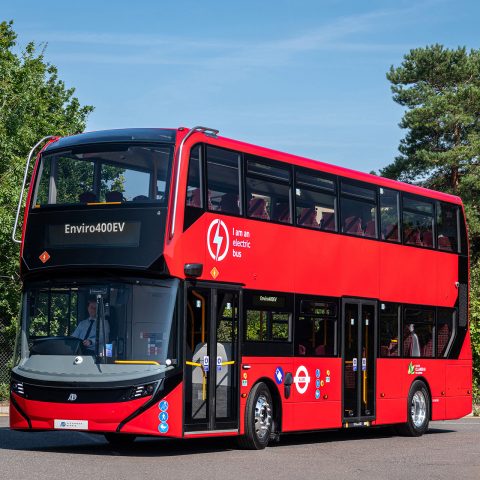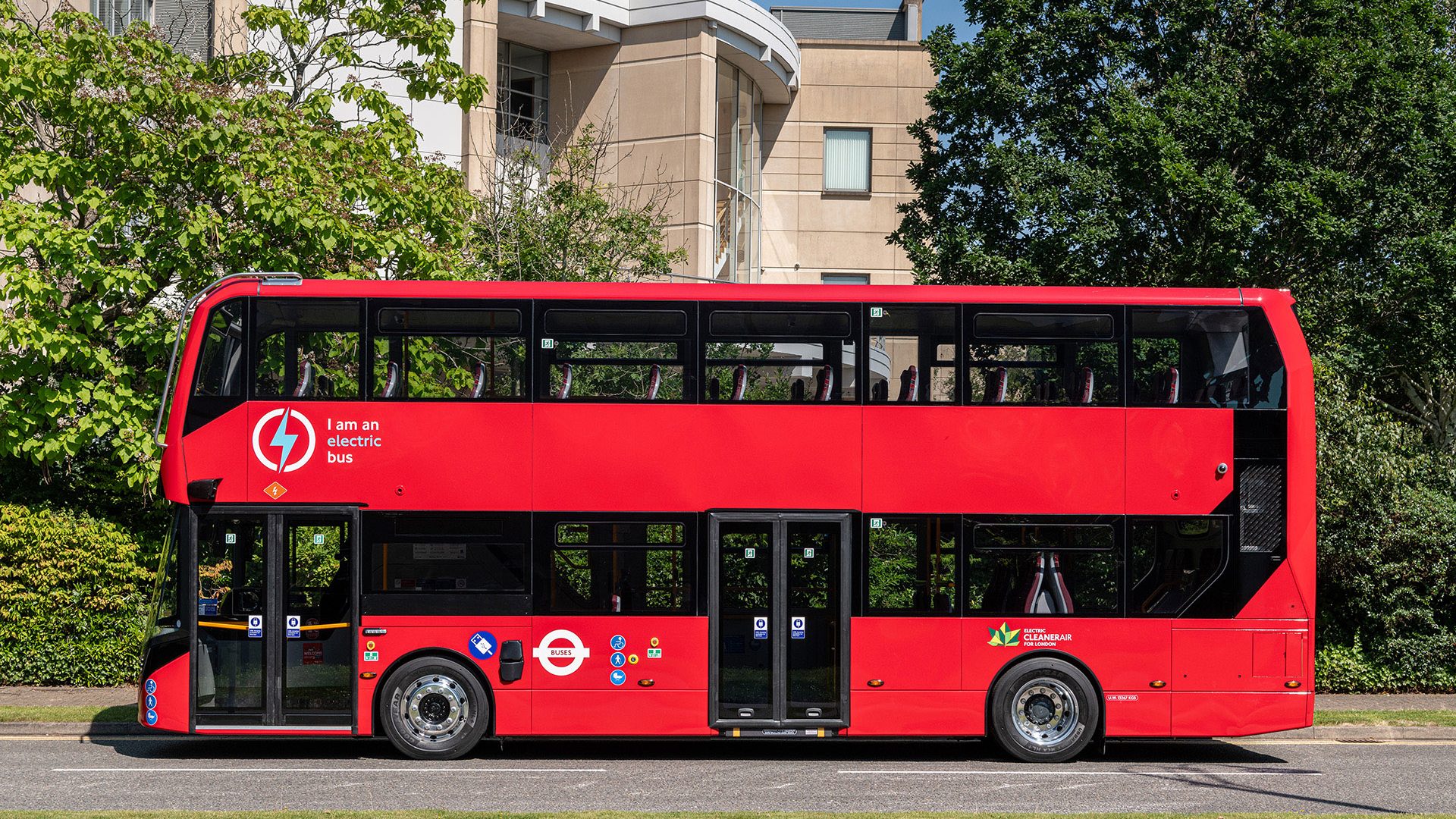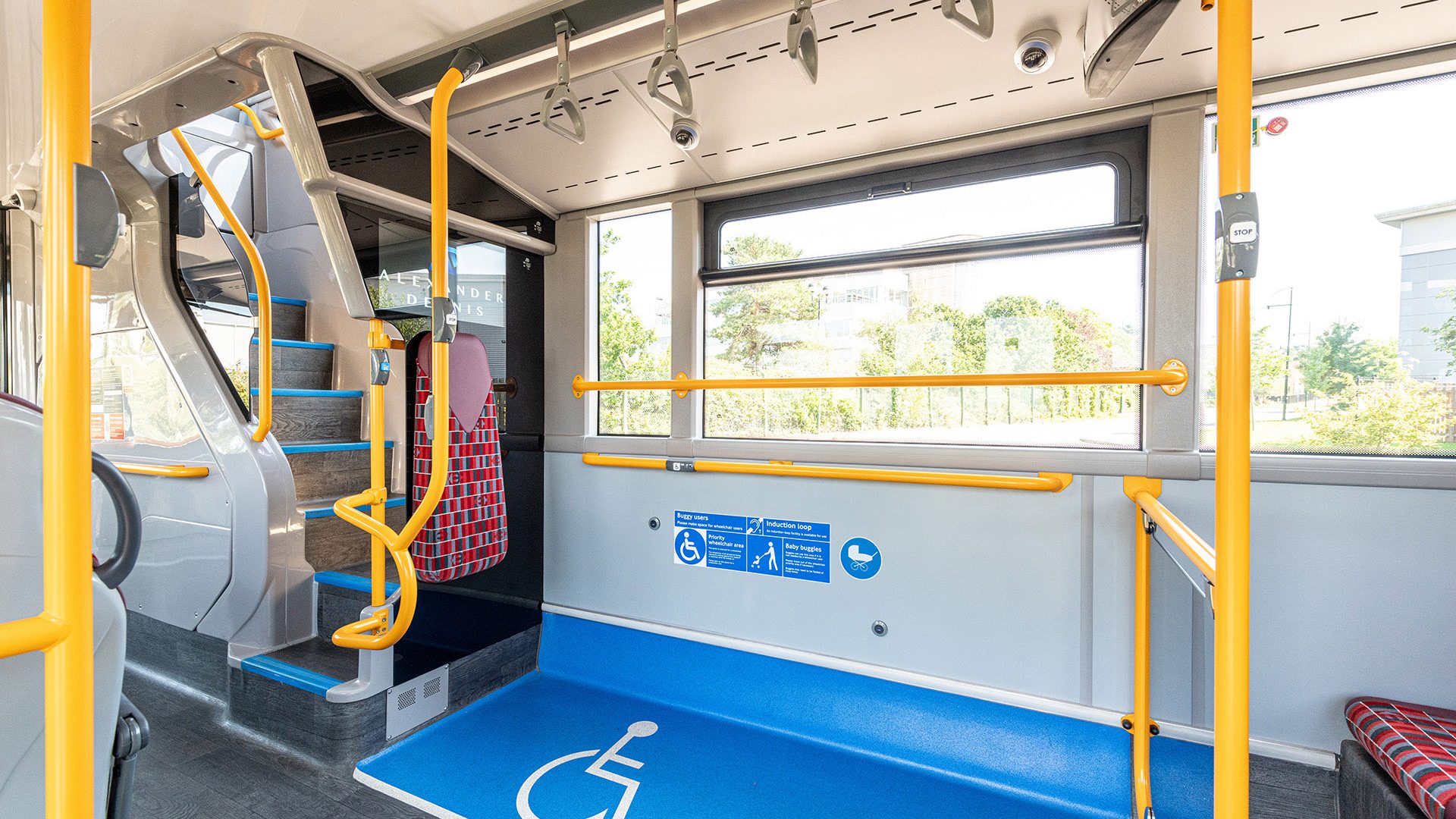Alexander Dennis Enviro400EV ready for London: the TfL-compliant DD e-bus can host up to 96 passengers
The bus, fitted with 472kWh batteries as standard (the supplier is the Polish Impact), comes together with a 14-years warranty, covering as many as 1 million km (whichever comes first). The vehicle launched this week is a demonstrator "which will be made available to operators upon completion of its homologation and certification later this year", in Alexander Dennis' words.

Alexander Dennis has just raised the curtain on the first next-generation Enviro400EV battery-electric double decker built to Transport for London (TfL) specification. The bus belongs to the new generation e-bus range developed in house by Alexander Dennis (meaning outside of the partnership with BYD).
The bus, fitted with 472kWh batteries as standard (the supplier is the Polish Impact), comes together with a 14-years warranty, covering as many as 1 million km (whichever comes first). The vehicle launched this week is a demonstrator “which will be made available to operators upon completion of its homologation and certification later this year“, in Alexander Dennis’ words.
Also the Enviro100EV will be soon launched in a version designed to fit TfL’s smallest size of single decker. Orders for both have been taken from London operators. The Enviro200EV single decker is now under development and will cover all other TfL vehicle requirements.
Also BYD – Alexander Dennis vehicles are set to increase in London: following an order that dates back to July 2023, Go-Ahead London to add nearly 300 units.

Alexander Dennis Enviro400EV is ready for London
The warranty “allows the zero-emission bus to cover two consecutive seven-year route contracts without a need for battery replacement, contributing to low total cost of ownership”.
Alexander Dennis says it has worked closely with TfL to ensure the Enviro400EV meets the latest iteration of the capital’s pioneering Bus Safety Standard. It was confirmed as the first vehicle to meet pedestrian head-impact requirements. Alexander Dennis has also engineered the Enviro400EV to meet UN Regulation 155 on cyber security and cyber security management (although not a legal requirement for the UK).
The batteries can be fully charged in as little as three hours through a DC plug connection, or even faster with optional roof-mounted connector rails for pantographs, ADL points out. Energy from the batteries powers the Enviro400EV through the heavy-duty version of the Voith Electrical Drive System, which has shown class-leading efficiency of just 0.67kWh/km over the UK Bus Cycle in Zemo Partnership zero-emission bus certification.

“99% of London routes can be fully serviced with our 472kWh battery“, states Alexander Dennis’ Ben Werth, Group Sales & Business Development Director.
A 354kWh battery capacity version is also available on the 10.5m long DD bus, with “a shorter wheelbase aiding manoeuvrability in the capital’s dense traffic and giving it a tight 10.1m turning radius”, Alexander Dennis says. It has TfL’s standard interior layout with a wheelchair bay accessed via an electric ramp at the centre doors. It seats 62 passengers on high-backed seats, with rear rows on both decks reduced to four seats to increase passenger comfort. Total capacity is up to 87 passengers with 472kWh batteries, or up to 96 passengers with 354kWh batteries.
Further ADL models coming, with improved batteries
Ben Werth, Group Sales & Business Development Director for Alexander Dennis, explained: “For the TfL Enviro400EV, there is a design sweet spot that optimises available energy and therefore range, as well as vehicle efficiency, length, weight and passenger capacity. In addition to detailed route analysis, we have conducted extensive tests with our supply partners at the cell, module, pack and vehicle level, which have shown that 99% of London routes can be fully serviced with our 472kWh battery. This is backed by a fantastic 14-year battery warranty that gives TfL-contracted operators peace of mind by covering the full duration of two consecutive route contracts. This means our Enviro400EV for London meets range requirements whilst achieving highly attractive total cost of ownership and providing commonality and serviceability across the wider electric bus fleet.”
He adds: “This week’s launch is the first step in bringing the next generation of zero-emission buses to the capital. We’re not stopping here, with further models in preparation and our future battery roadmap showing growth in battery density, which points towards needing fewer batteries in future to deliver the same total energy at an even better total cost of ownership.”







